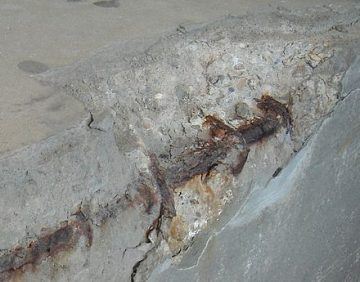by Joshua Wilbur

This month I’m submitting a guest post written by an acquaintance of mine.
His name, strange as it may sound, is One-Week Man. He suffers from an unusual quirk: he can only remember the most recent week of his past, and he can only imagine one week into his future. He is forever stuck in this ever-shifting window of time.
One-Week Man is a bizarre, parochial soul, and I’m skeptical of his capacity to hold a well-informed opinion on anything of consequence. Nevertheless, he insisted on sharing his thoughts, which I present below, unedited.
It’s true. I can only recall one week of the past and think ahead one week into the future. (Maybe “Two-Week Man” would be a more fitting name, but I didn’t have much of a choice in the matter.)
Some explanation might be helpful. I’m writing this on a Sunday, September 1st. Exactly one week ago, I spent the day on the beach. What happened in my life prior to that sunny afternoon, I couldn’t tell you: it’s all a haze. Looking forward to next Sunday, I’m planning to do some work around the house, a one-bedroom cottage that I don’t remember moving into. Beyond that, I literally cannot imagine what the future holds. August 25th and September 8th represent the limits of my mental universe.
As it turns out, I’m very busy this week. My calendar—who would I be without it?—is filled with work meetings, doctors’ appointments, even an out-of-state conference from Wednesday to Friday. I work in the life insurance industry; I always have as far as I can tell.
For the most part, I’m content with things, despite my temporal malady. The doctors can’t explain my condition, which they consider untreatable and “psychosomatic” (whatever that means, I’ve forgotten), so there’s nothing I can do but live one week at a time. Most people, apparently, are terrible at thinking about the future. For me, it’s an absolute black hole. It’s difficult because I really do care about the fate of, well, everything: myself, my country, my planet. But I can’t see beyond the week, cursed as I am with a short-sighted brain and countless things-to-do. This is my dilemma.

A few days ago, I watched an eye-opening documentary about our ongoing climate crisis. It was fantastic but also quite distressing. Since then, I’ve felt terribly guilty about what we humans are doing to the environment: the burning Amazon, the warming oceans, the degraded soil. Unfortunately, because of my condition, I can’t appreciate the specifics of what’s happening to mother Earth; I don’t know (I can’t remember!) the first thing about the sciences, and I don’t have time in my schedule this week to educate myself.
Instead, I’ve been walking the floors of my office distracted by these awful images in my head—evil gases in the atmosphere, endless reefs of bleached coral, the last animal of an endangered species dying in a heap—and a shameful feeling in my stomach. I want so badly for the world to be healthy and for its people to be good, but I’m trapped in time, you see, with a past me’s steaks in the fridge and unleaded fuel in the car tank. What’s really unfortunate is that a few weeks from now, my concerns for the climate will have left me completely, unless I conjure them up day after day, which isn’t exactly pleasant.
Much of what I know about the climate crisis I’ve gleaned from recent headlines. I’ve learned, for example, that airplanes are terrible things. Friday’s edition of the Wall Street Journal declared: “Flight Shame Comes to The U.S. — via Greta Thunberg’s Sailboat.” Greta Thunberg is a Swedish climate activist, who, at only sixteen years old, has become a leading voice in the fight against climate change. Because traveling by airplane is so harmful to the planet, Thunberg spent the last two weeks crossing the Atlantic by boat, a span of time in which I’ve already forgotten myself twice. Thunberg, for her part, has made a symbol of the voyage and was met by an adoring crowd in New York harbor.
No one will cheer for me in the days to come. On Wednesday, I’m flying to the 2019 Life Insurance Conference. I don’t remember booking the flight, but my boss (whom I’m getting to know, once again) has insisted that the event will provide a fantastic networking opportunity. I feel guilty about the gases and the coral and the dying animals—I really do—but, considering the importance of the conference, I simply can’t afford to become philosophically opposed to air travel at the moment.
To my credit, I’ve tried to affect change during the limited hours in which I’ve known the truth. I’ve recycled plastic bottles, ridden my bicycle to the store and back, and shared lots of content on social media. And while I understand that what George Monbiot has called “pathetic micro-consumerist bollocks”—sipping through paper straws and chomping on grass-fed beef—won’t put a dent in the climate-change behemoth, there isn’t much else I can do given my condition. I am fully booked through Sunday, and, if my piled-up mail is any indication, I’m already drowning in debt. If I were truly ethical, I’d be a vegan living off the grid, but my case is unique, of course. With every passing day, I inherit the new circumstances of my life. I don’t have the luxury of time, money, memory, or future—I only have the week ahead.

This morning, for some odd reason, I’ve been thinking about concrete. There’s so much of it! I stumbled across a series of articles called “Concrete Week,” apparently published at Guardian Cities back in February. Did you know that “concrete is responsible for up to 8% of the world’s emissions of carbon dioxide, more than any material after fossil fuels?” After water, it’s the most commonly used substance on Earth, and it’s utterly disastrous for the environment, contributing to the greenhouse effect, clogging landfills, and ruining natural ecosystems. But, according to the Guardian’s Jonathan Watts, concrete is also responsible for “putting roofs over the heads of billions, fortifying our defences against natural disasters and providing a structure for healthcare, education, transport, energy and industry.” The modern world is made of the stuff. It’s quite the paradox: good and bad, sustainability and decay, progress and destruction. Thinking about it unsettles me, and what can I do in a week? Bulldoze the office parking lot?
No, a One-Week Man can’t do much: best to focus on the here-and-now. Eight days from now, I won’t even remember having written this. I’m jealous of you, Dear Reader, who’s been blessed with the ability to learn from the past and envision the long future. And maybe you’re jealous of me, a man who can forget, every week, forever, what should be done.
